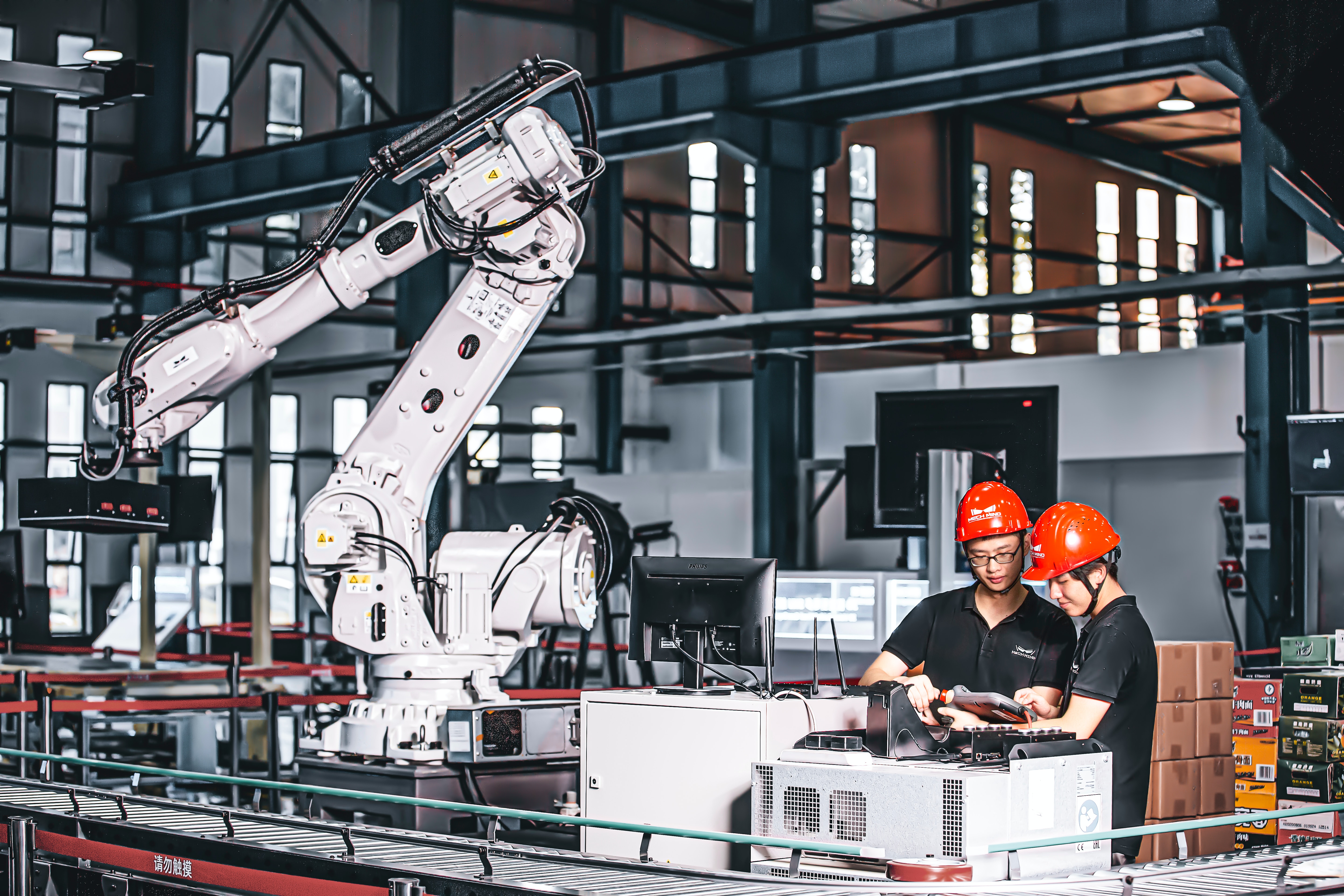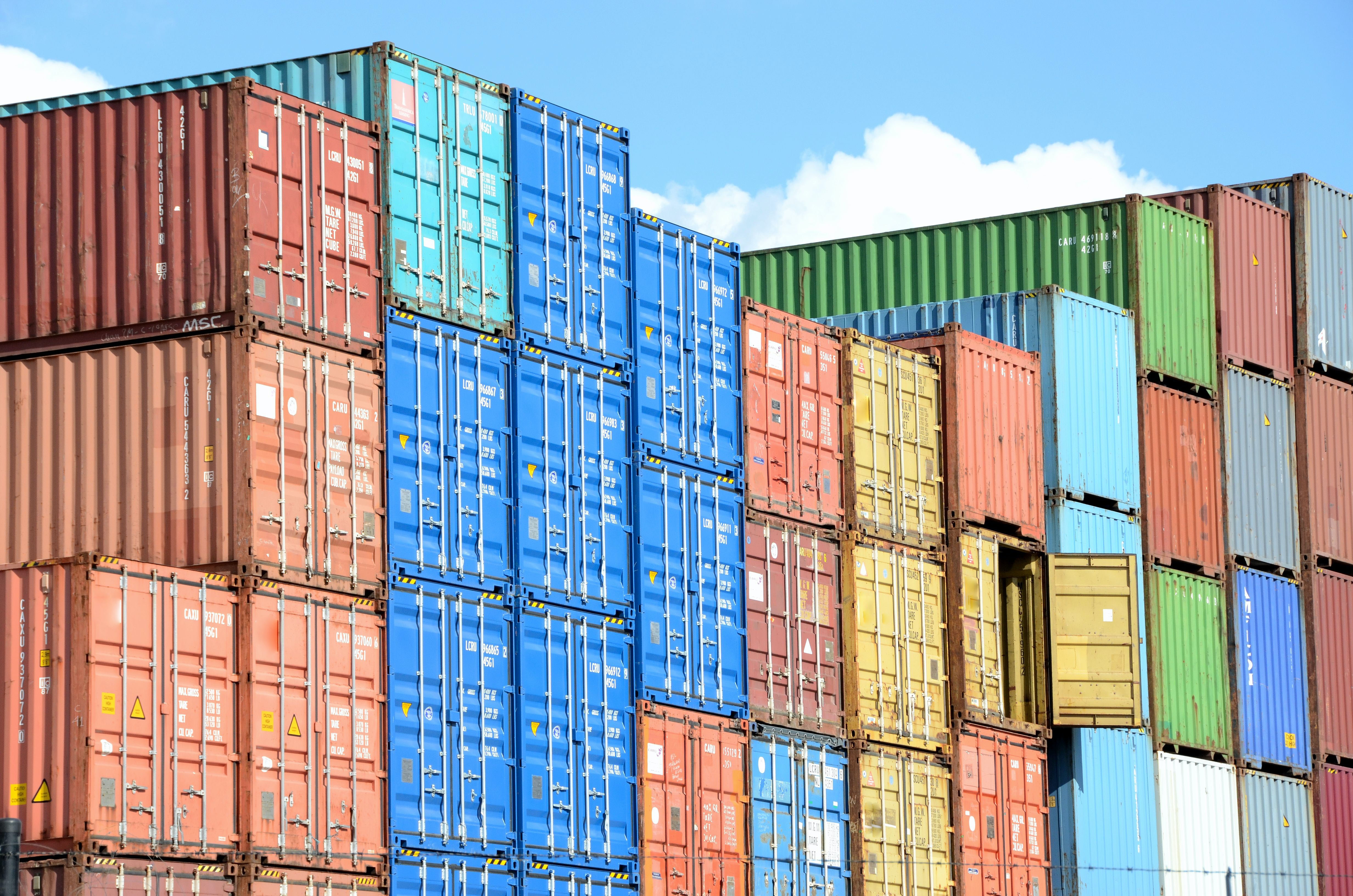June 09, 2023
By Blog Team
In
The world of manufacturing is becoming increasingly globalised.
As of March 2023, UK manufacturing has risen 0.7 percent in the last month, 1% higher than pre-pandemic levels, meaning that the UK industry is slowly but surely on the rise.
However, global rates are predicted to rise 3.57% over the next five years (2023 - 2028), which amounts to over $14.83tn, which is massive.
With international trade agreements, offshoring, and supply chains that span across continents, the need for effective and accurate communication, as well as international diversification, has never been more crucial.
As a business, if you're not reaching out and connecting with the available global markets, then you're going to fall behind. We live in a hyper-connected age, and those who embrace it will thrive, as those who don't will be left behind.
Herein lies the importance of translation in the manufacturing industry, and that's exactly what we're focusing on in today's guide.
Are You Speaking the Language of Global Trade? Enhancing Cross-Border Communication in Manufacturing

In today's era of widespread globalisation, manufacturing firms have far-reaching influence, with their footprints spanning across international borders.
With businesses now procuring raw materials and selling products on a truly global scale, seamless cross-cultural communication has become a paramount necessity.
Now, imagine being part of this massive landscape but not having the tools to interact efficiently with diverse cultures and languages. This could lead to missed opportunities and misunderstandings, potentially hampering business growth.
When you use the aid of professional translation services, your manufacturing company can bridge this language gap.
A study by CSA Research indicated that 76% of consumers prefer to buy products in their native language, and this alone showcases how having your business communication translated into the local languages of your international markets can significantly enhance business relations, boosting trade success.
Manufacturers can maintain robust relationships with international partners and stakeholders by ensuring accurate, culturally sensitive translations. This leads to smooth operations, minimises potential miscommunications, and fosters an environment conducive to thriving global trade.
Embracing translation services isn't just about linguistic conversion—it's about fostering understanding, promoting inclusivity, and making global trade a truly comprehensive journey.
With professional translation services, you are not just speaking languages; you're speaking the language of global trade.
Can You Afford to Misinterpret? Understanding International Regulations through Translation

In the manufacturing industry, complying with international regulations isn't just crucial—it's mandatory.
These standards are created to ensure safety, quality, and fair trade. However, given the global nature of these rules, they often come in different languages, reflecting the diversity of the countries involved.
Misinterpretation is not an option.
A single misunderstood regulation can lead to non-compliance, resulting in severe financial penalties. According to a report by Ponemon Institute, non-compliance costs 2.71 times the cost of compliance, highlighting the economic importance of understanding these regulations accurately.
Moreover, non-compliance can lead to irreversible damage to a company's reputation. It implies a lack of responsibility and can severely tarnish a brand's image, taking years to repair.
Consequently, it's vital for manufacturing companies to ensure that they fully comprehend every regulation applicable to their operation, regardless of the language it's written in.
This is where reliable, professional translation services come into play.
They provide manufacturers with precise translations of these regulations, reducing the risk of misunderstandings and subsequent non-compliance.
By working with expert translators who understand the complexities of the manufacturing industry, businesses can ensure that they adhere to all international regulations, protect their reputations, and avoid unnecessary penalties.
The Power of Clarity: Prioritising Multilingual Product Documentation
Take a moment to think about your product documentation and how it doesn't stop at just being accurate but it needs to be understood by a diverse range of customers.
This includes user manuals, safety instructions, and product specifications that accompany a product. Ensuring these crucial documents are available in the language of your target market is a key consideration for international manufacturers.
The user manuals and instructions that a customer interacts with are often their first engagement with the product. If these resources are easy to understand and use, it paves the way for a positive user experience.
On the other hand, confusing or poorly translated documentation can lead to user frustration and even unsafe product usage.
Moreover, in an era where customers have many choices, personalised experiences can be a game-changer.
When customers see that a company has tried to provide information in their native language, it can significantly boost their satisfaction and loyalty.
By prioritising this, manufacturers can not only elevate the user experience but also strengthen their brand loyalty across different markets.
How Clear Communication Helps Overcome Manufacturing Challenges
The manufacturing sector faces many challenges in today's volatile global environment.
Key among them is disruptions in supply chains and wildly fluctuating demand, both of which require swift and effective solutions. Clear communication, especially with international partners, becomes a significant asset in navigating these rough waters.
Understanding and being understood is crucial when dealing with complex, interconnected supply chains.
For instance, manufacturers often have to manage relationships with suppliers from various countries, each with their own languages and business cultures. Miscommunications in these relationships can lead to delays, errors, or even breaches of contract, with potential negative impacts on production.
Similarly, with demand patterns changing rapidly, manufacturers need to stay agile and responsive. This includes communicating effectively with customers and understanding their changing needs and preferences. Manufacturers that can do this will have a better chance of anticipating shifts in demand and adjusting their strategies accordingly.
Clear communication also becomes vital when negotiating contract changes or dealing with regulatory bodies. Manufacturers must ensure that all parties understand and agree upon any changes to avoid conflicts and maintain positive business relationships.
In essence, effective communication is the compass that can guide manufacturers through the unpredictable currents of the global market.
Conclusion
As you can see, translation is not just an additional service for manufacturers; it's a strategic tool for growth, compliance, and customer satisfaction in the global marketplace.
As the manufacturing industry continues to face challenges, the value of effective, professional translation services will only continue to rise.
Be prepared and effective when you navigate the complex global manufacturing landscape with Wolfestone.
Our professional translation services empower you to communicate seamlessly across borders, ensuring your business thrives in any market. Don't let language barriers hold you back.
Partner with Wolfestone and unlock your global potential with manufacturing translation today!
